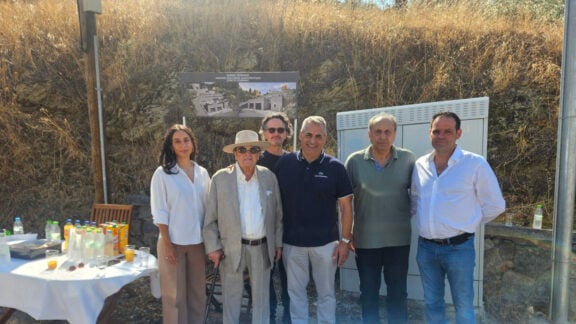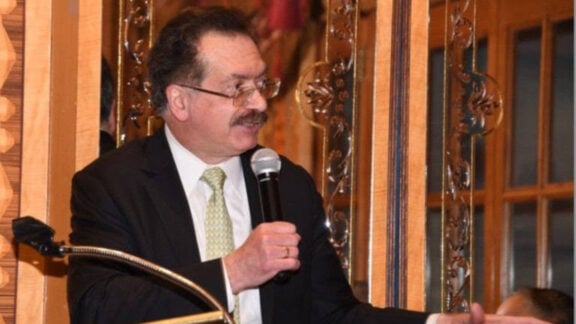Does a week ever pass without the whole planet reeling in terror, facing one atrocity after another? The tragedy in Manchester was yet another reminder that we live in troubled times and we should act accordingly. The problem with troubled times, though, is that they can either bring out the best in people, or the worst. In Manchester, a city famous for its strong commitment to community values, the terrorist attack was a serious blow that allowed for people to effectively help each other and show solidarity. But the aftermath of the bombing saw the world desperately trying to find a way to prevent such an incident from happening again. “”In case you’ve missed it, the world is going to hell,” said Mark Thomson, analyst for the Australian Strategic Policy Institute, presenting the think tank’s report on the Federal Budget. “Yet we continue as if it’s business as usual, squabbling about whether defence industry jobs will be created in one electorate or another.
“The institute’s recipe of course is one for more defence funding, to address the global security challenges we are facing. They may be right. And they do have someone in government eager to follow their advice. The Minister for Immigration and Border Protection, Peter Dutton, was quick to entertain the idea of establishing a US-style homeland security department. “If there are to be changes, then they will be made on the basis it’s in our national interest but that’s a decision in due course by the prime minister,” he told 2GB radio.
For his part, the PM tried to look determined, without giving too much away: “While we mourn we must learn from these events as we do and sharpen our resolve to defeat the terrorists abroad and at home,” Malcolm Turnbull said.
He should have said more. Because the more restrained the PM appears, the more room he leaves for Dutton to go out and hijack the political agenda. In a week dominated by mourning and horror and sorrow for innocent victims, he managed to dominate public discourse with his usual anti-immigrant, anti-refugee, anti-Muslim rhetoric. In fact, the week started with the Immigration Minister declaring war on “fake refugees” and ended with him celebrating the sacking of Muslim activist Yassmin Abdel-Magied from the ABC with the now infamous words: “Good. That’s a start. One down and many to go”.
So yes, it’s fair to say that it was his idea of politics that monopolised the public sphere. His attack on the ABC was consistent with the conservative complaint of the national broadcaster being too ‘left-wing’. His bellicose rhetoric was not reserved for the taxpayer’s money-wasters at the ABC that cause his blood pressure to rise. Banging the drum of war, he went on to say that, “the best outcome is for those who make a decision to fight in Syria, that they’re killed over there and don’t come back.” Not the most reasonable comment to be made by someone designing public policy. Still, this is just talk. It is his actions that matter most and this week the minister went on to issue an ultimatum addressed to 7,500 asylum seekers in Australia who have yet to formally apply for protection. If they don’t do so by 1 October they face deportation.
“The October cut-off for lodgement of protection claims will ensure that Australian taxpayers are not providing financial support to people who have no right to be in Australia,” he said, causing panic among hundreds of people waiting for legal assistance. About 30,500 asylum seekers arrived in Australia by sea between August 2012 and January 2014 and 23,000 of them have lodged applications. Human rights lawyers point out that the deadline is impossible to meet. The required protection application – form 866 – has 101 questions and is 41 pages long. Almost all asylum seekers require legal assistance to correctly fill it out; even then it typically takes between 10 and 15 hours. Speaking on a Facebook Live broadcast, Kon Karapanagiotidis, CEO of the Asylum Seekers Resource Centre (ASRC) pointed out that it took him 30 years of experience as a lawyer to be able to fill out these forms and warned about the implications.
It is yet another punitive measure reserved for people who are mostly in need. People who have seen their houses burnt, their livelihoods destroyed, their families die, their countries bombed; people who were exploited by people smugglers, who faced the possibility of death at sea, who are indefinitely detained at offshore concentration camps under inhumane conditions. Adding insult to their injury, the minister calls them “fake refugees” (the PM wisely refrained from espousing the term) and again played the ‘taxpayer money’ card (when in fact, the cost of detention is much higher than the cost of bringing all asylum seekers to Australia). Responding to the announcement the ASRC issued a statement saying: “At the ASRC we see more than 50 people in our legal clinics each week, including vulnerable families and people who have been tortured, all who are unable to lodge their applications without legal assistance. This unfair legal process has forced thousands of people to wait more than three, if not four years to apply – at the first opportunity they have sought our assistance. The government has trapped people in a ruthless system”.
While all this was happening, Tim O’Connor, director of the Refugee Council of Australia, addressed the Senate this week and pointed out that Australia was presiding over a humanitarian crisis of its own making. “Innocent people who came to us seeking safety have been trapped in a circle of hell while our governments have dithered and delayed. This is a time for common sense and compassion. The immediate solution is to bring all those we have sent to Nauru and Manus to Australia immediately, it’s the fairest and quickest way to prevent another tragedy,” he said. But the minister was not listening. He was too busy checking his blood pressure.








